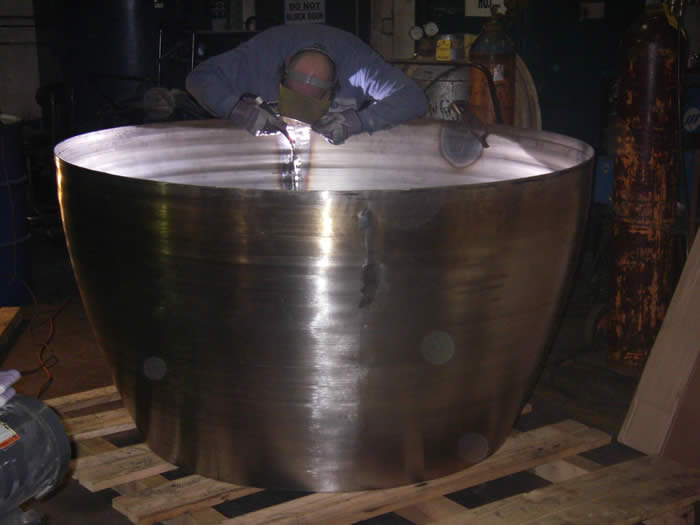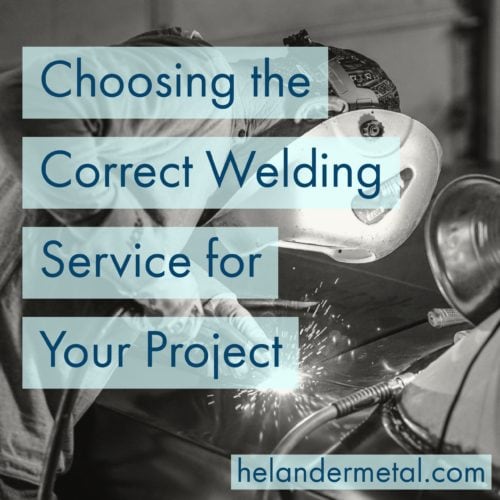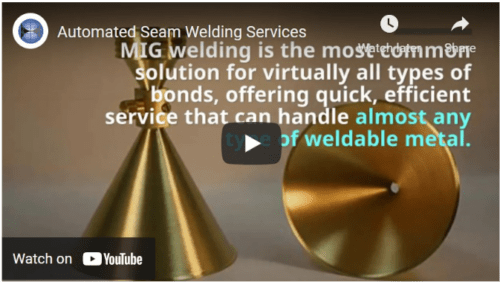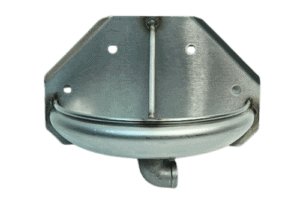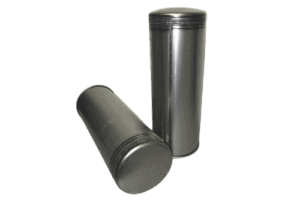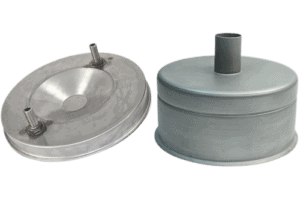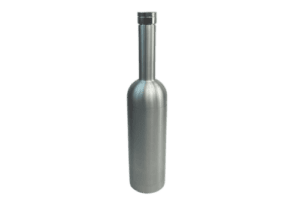GMAW (MIG), GTAW (TIG), Soldering, and Automated Seam Welding
Performing aluminum, steel, copper, brass and stainless steel welding and soldering, we are a premier provider to several different commercial industries. Helander works with carbon steel up to 0.375″ thickness, aluminum up to 0.750″ thickness, and stainless steel up to 0.250″ in thickness.
With six different welding processes from which to choose, we feature cylindrical welding for tubing and pressure vessels, and can accommodate a wide range of welding requirements. To ensure optimal quality and reliability, we comply with regulations from AWS, Nadcap (the National Aerospace and Defense Contractors Accreditation Program), and other relevant industry specifications.
Whether you’re considering working with a manual welding service, such as stick welding, or a robotic welding service, there are many factors to consider before deciding on a specific technique.
Which welding service is right for my project?
Each style of welding offers its own unique features and benefits, and will suit different types of materials, requirements, and applications.
Our skilled team of welding technicians specializes in:
- GMAW or MIG welding
- GTAW or TIG welding
- Soldering
- Automated seam welding
- Cylindrical welding (for tubing and pressure applications)
- Aerospace welding
We can work with a wide range of materials, performing industry-specific custom work on aluminum, copper, brass, steel, and stainless steel. Our team has years of experience working with all types of welding equipment, as well as soldering irons.
What is GMAW Welding?
Gas metal arc welding (GMAW) is a simple and versatile method that suits a long list of materials. Commonly called MIG welding (short for metal inert gas welding), the process utilizes an adjustable, continuous, solid wire electrode feed, or welding wire. The feed is attached to a welding gun and is shielded by a protective gas, usually CO2.
Developed in the 1940s, MIG welding became immediately popular for working with aluminum and stainless steel. In today’s metal shops, MIG welding is the most common solution for virtually all types of bonds, offering quick, efficient service that can handle almost any type of weldable metal.
Below are a few of the main benefits of utilizing a gas metal arc welder.
- High productivity, allowing for a simple and straightforward process
- Low hydrogen deposits due to the integrated use of other gases
- Low levels of splatter and overall mess due to the focused nature of the process
- High efficiency and the ability to integrate manual, machine, and robotic welding assistance as needed
- Versatility for applications of all kinds, from aerospace to marine to medicine
What is GTAW Welding?
More commonly called TIG (tungsten inert gas) welding, gas tungsten arc welding, or GTAW, applies a non-consumable tungsten welding rod and intense heat to a base metal in order to create a weld. The metals in the bond can be melted directly together to create an autogenous weld; the combination of heat, the tungsten power arc, and shielding gases can also be applied to a long list of filler materials, including exotic and unusual alloys.
The most common shielding gas for GTAW is argon, though gases can vary based on the specific material used in a project; helium is best for stainless steel and copper, while a combination of helium and argon is the best fit for aluminum.
Major benefits of TIG welding include:
- Clean welds and processing, with no sparks or splatter
- No additional smoke or fumes
- High precision; though it requires a highly skilled technician, the TIG process produces extremely clean, precise welds free of slag
- Useful for most common metals, including aluminum, steel, stainless steel, and copper
- Less required amperage and better technician control for accurate bonds in thin and delicate metalwork
What is Automated Seam Welding?
Excellent for roll-formed, strip, and flat sheet materials, automated seam welding applies the MIG process in a focused, automated setting that produces full-penetration seams in aluminum, carbon steel, and stainless steel. The process is continuous, creating airtight joints at a quick pace.
Major benefits of the automated seam welding process include:
- Airtight, accurate single-seam and parallel-seam welds for cones, boxes, and flat sheets
- High welding speed with extreme accuracy
- Quick turnarounds for large-scale projects with low tensile and fatigue strength
- Useful for both similar and dissimilar metals
Automated seam welding is ideal for a wide range of materials, including:
- Stainless steel
- Aluminum
- Steel
- Copper
- Inconel®
- Titanium
- Brass
Certified Welding Testing Services
In addition to our MIG, TIG, soldering and automated seam welding services, we are pleased to provide several types of certified weld testing services, including dye-penetrant testing and hydro-static testing.
Custom Welding and Metal Fabrication From Helander
Helander creates metal components for a wide range of industries and applications, including commercial food and beverage, waste services, furnishings and construction, automotive design, medicine, defense, HVAC, communications, and aerospace.
We’ve been providing custom welding services and metal fabrication services to the Chicago area for 80 years and counting. All of our welding services are supported by in-house certified testing, including dye-penetrant testing and hydrostatic testing.
To learn more about our welding, custom engineering, and metal stamping services, as well as our full in-house machining capabilities, reach out to the team today.

